DENTAL CROWNS: METAL PORCELAIN, ZIRCONIUM
Dental crowns, also known as caps, are common restorative dental treatments used to restore the shape, size, strength, and appearance of damaged or decayed teeth. In Turkey, dental crowns are a popular option for patients seeking high-quality dental care at affordable prices. With advancements in technology and materials, dental clinics in Turkey offer a wide range of crown options tailored to meet individual needs and preferences.
Whether it’s repairing a cracked tooth, covering a discoloured tooth, or restoring a tooth after a root canal, dental crowns provide durable and aesthetically pleasing solutions. This article explores the various types of dental crowns available in Turkey and highlights the benefits of undergoing crown procedures in this thriving dental tourism destination.
We provide the exceptional service we’d want to experience ourselves!
Get offers for dental treatment prices in turkey
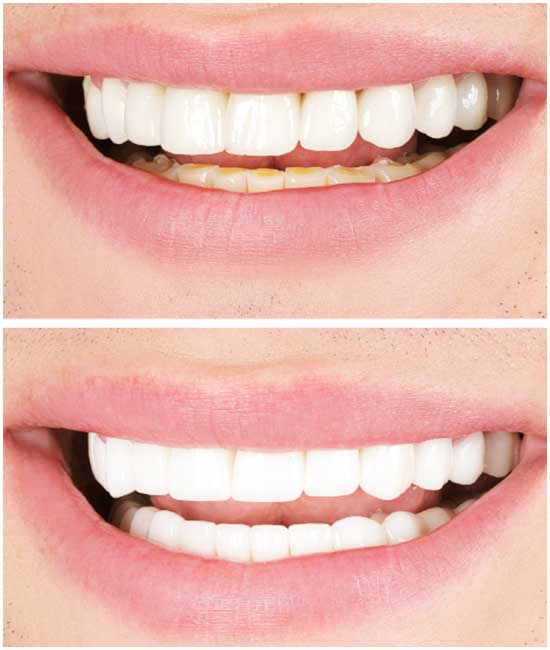
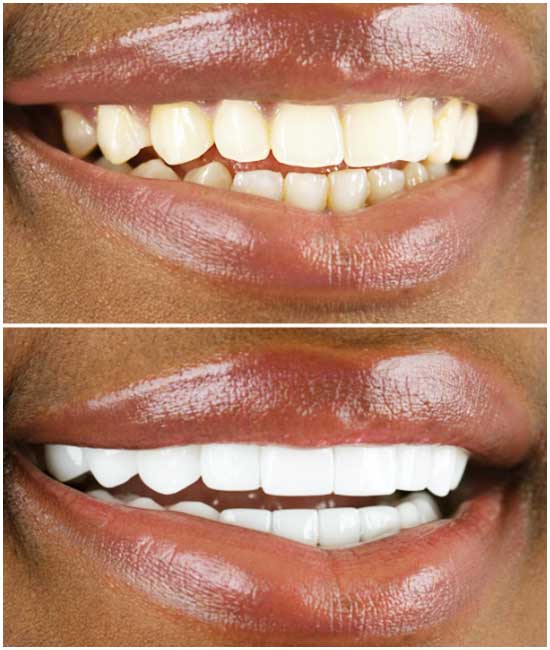
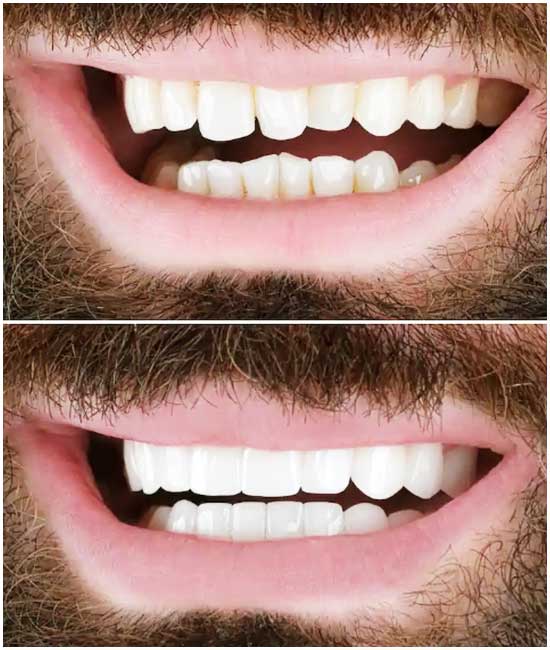
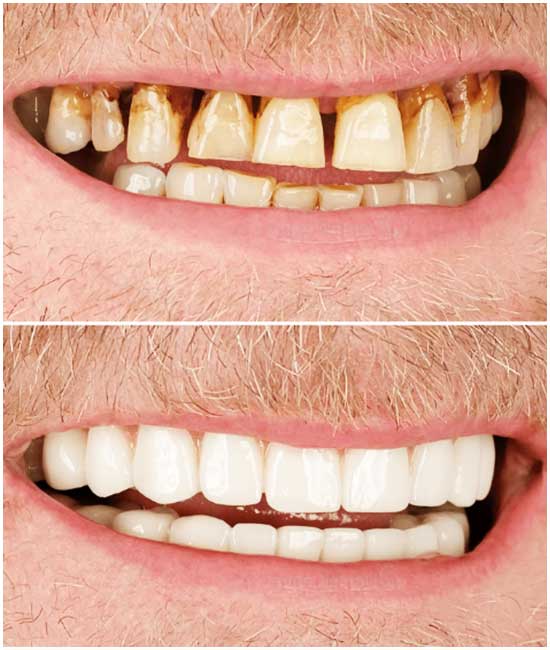
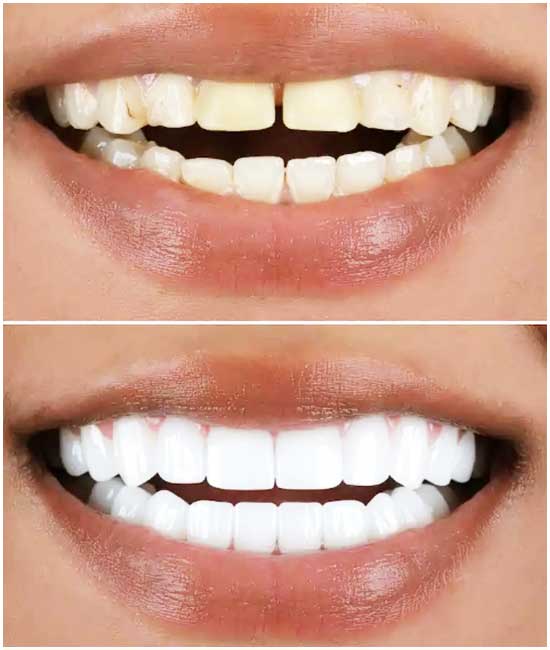
BEFORE&AFTER PHOTOS
Types of Dental Crowns in Turkey
- Porcelain Crowns: Porcelain crowns are highly aesthetic and closely resemble natural teeth. They are custom-made to match the colour and shape of surrounding teeth, making them ideal for front teeth restorations.
- Zirconia Crowns: Zirconia crowns offer exceptional strength and durability. They are resistant to chipping and cracking, making them suitable for both front and back teeth restorations.
- Metal-Porcelain Crowns: Metal-porcelain crowns combine the strength of metal with the aesthetics of porcelain. They are long-lasting and provide a natural appearance, making them a popular choice for dental restorations.
- All-Ceramic Crowns: All-ceramic crowns are made entirely of ceramic material, providing excellent aesthetics and biocompatibility. They are suitable for patients with metal allergies and offer a natural-looking smile.
- Gold Crowns: Gold crowns are known for their durability and longevity. While they are not as aesthetically pleasing as other options, they are highly resistant to wear and are often recommended for back teeth restorations.
These are just a few examples of the types of dental crowns available in Turkey. Your dentist will recommend the most suitable crown material based on factors such as your oral health, budget, and aesthetic preferences.
Installing Dental Crowns in Turkey
Steps for Installing Dental Crowns in Turkey
- Consultation: The first step involves a consultation with your dentist in Turkey. During this appointment, your dentist will assess your oral health, discuss your treatment options, and address any concerns or questions you may have.
- Tooth Preparation: Once you decide to proceed with dental crowns, your dentist will prepare the affected teeth by removing a small amount of enamel to create space for the crown. This step ensures a proper fit for the crown.
- Impressions: After tooth preparation, your dentist will take impressions of your teeth using dental putty or digital scanning technology. These impressions will be used to custom-make your dental crowns in a dental laboratory.
- Temporary Crowns: While your permanent crowns are being fabricated, temporary crowns may be placed to protect your prepared teeth and maintain aesthetics and function.
- Crown Fabrication: Skilled dental technicians will use the impressions to fabricate your dental crowns according to your dentist’s specifications. This process typically takes a few days to complete.
- Crown Placement: Once your permanent crowns are ready, you will return to the dental clinic for their placement. Your dentist will carefully check the fit, colour, and aesthetics of the crowns before permanently bonding them to your teeth using dental cement.
- Final Adjustments: After placement, your dentist may make final adjustments to ensure that your crowns fit comfortably and function properly. This may involve polishing the crowns and checking your bite alignment.
- Aftercare Instructions: Your dentist will provide you with aftercare instructions to maintain your dental crowns properly. This may include practicing good oral hygiene, avoiding hard or sticky foods, and attending regular dental check-ups.
By following these steps, you can achieve a beautiful and functional smile with dental crowns in Turkey.
FAQ about Dental Crowns turkey
How much are dental crowns in Turkey?
The cost of dental crowns in Turkey can vary depending on factors such as the type of crown, the dental clinic, and the materials used. On average, the cost of dental crowns in Turkey is generally more affordable compared to many other countries.
Is it worth getting crowns in Turkey?
Many patients find it worthwhile to get dental crowns in Turkey due to the high quality of dental care offered at competitive prices. Turkey has become a popular destination for dental tourism, attracting patients from around the world seeking affordable and quality dental treatments.
How long do crowns in Turkey last?
With proper care and maintenance, dental crowns in Turkey can last for many years. The lifespan of a dental crown depends on various factors such as oral hygiene practices, the material of the crown, and individual habits like teeth grinding or chewing on hard objects.
Why are crowns so cheap in Turkey?
Dental crowns in Turkey may be more affordable due to lower operating costs, competitive pricing among dental clinics, and favourable currency exchange rates. Additionally, Turkey has a well-developed dental tourism industry, which helps keep costs competitive.
How long after a crown can you fly?
In general, it is advisable to wait at least a day or two after getting a dental crown before flying. This allows time for any temporary discomfort or swelling to subside and ensures that the crown is securely in place before travelling.
Can a crown be done in one dental visit?
While some dental clinics may offer same-day crown placement using advanced technology like CEREC, traditional crown procedures typically require two visits. During the first visit, the tooth is prepared, impressions are taken, and a temporary crown is placed. The permanent crown is then fabricated in a dental laboratory and placed during the second visit.
When can you not put a crown on a tooth?
There are certain situations where placing a crown on a tooth may not be advisable, such as if the tooth has extensive decay or damage that compromises its structural integrity. Additionally, if the tooth lacks sufficient remaining tooth structure to support a crown, alternative treatments may be recommended.
At what point can you not get a crown?
If a tooth is severely compromised or if there is significant damage to the underlying tooth structure, it may not be suitable for a crown. In such cases, your dentist may recommend alternative treatments such as dental implants, bridges, or extraction followed by replacement options.